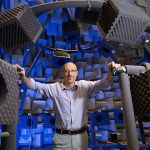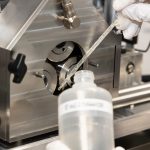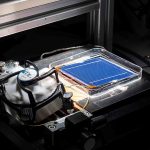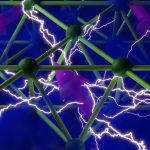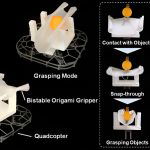New projected turn signal enhances road safety with advanced lighting technology
Researchers at the Fraunhofer Institute for Applied Optics and Precision Engineering IOF have developed a cutting-edge turn signal technology that aims to significantly improve...
Tapping into our ‘gerbil brain’ could enhance future hearing devices
Macquarie University researchers have recently overturned a long-standing theory from the 1940s on how humans pinpoint the origin of sounds.
Their findings suggest that simpler,...
Innovative silk fabric could be the solution to noise pollution
In our noisy world, unwanted sounds—from traffic to loud neighbors—are a common frustration.
But a breakthrough from researchers at MIT and other institutions offers hope...
Scientists develop revolutionary device to accelerate advanced materials research
Dr. Jason Stafford, a researcher at the University of Birmingham, has developed a groundbreaking device that could significantly speed up the creation of advanced...
Sugar-powered catalyst turns carbon dioxide into useful chemicals
A groundbreaking discovery by Northwestern University scientists could hold the key to tackling carbon dioxide (CO2) emissions, a major contributor to climate change.
They've developed...
Starlink on Mars: NASA is paying SpaceX to look into the idea
NASA has given the go-ahead for SpaceX to work out a plan to adapt its Starlink broadband internet satellites for use in a Martian...
Scientists develop eco-friendly lubricant additives to protect water turbines and waterways
Scientists at the Department of Energy's Oak Ridge National Laboratory (ORNL) have developed groundbreaking lubricant additives that not only protect water turbine equipment but...
Scientists develop high-efficiency perovskite solar cells for next-generation renewable energy
In Switzerland, traditional roof tiles are increasingly being replaced by large, black and blue panels that convert sunlight into electricity.
These panels, made predominantly from...
MIT physicists discover new way to create strange metal
In an exciting development at MIT, physicists have found a new method to create a state of matter known as a "strange metal."
This discovery...
Origami-inspired gripper transforms quadcopters for better handling
Researchers from Shibaura Institute of Technology (SIT) in Japan have made a significant breakthrough by creating a unique, origami-based grasping mechanism for quadcopters, commonly...


